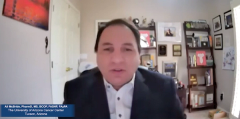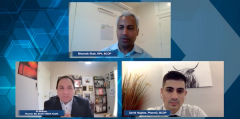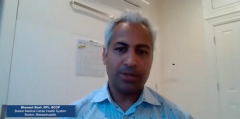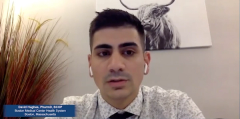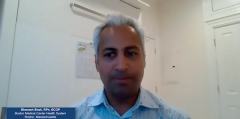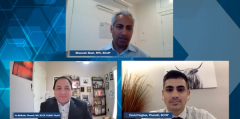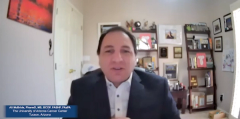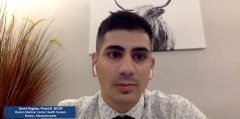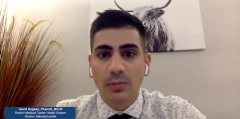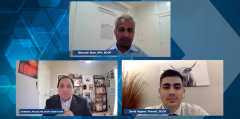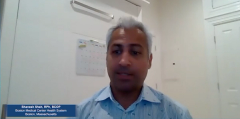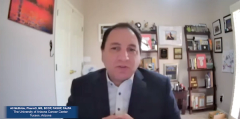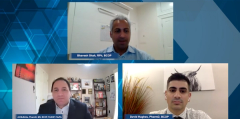
Immune Thrombocytopenia Treatment: Rituximab and Splenectomy
Episodes in this series

Considerations regarding the current roles of rituximab and splenectomy as treatment options in immune thrombocytopenia as additional therapies emerge.
Bhavesh Shah, RPh, BCOP: We covered the most prominently utilized agents in ITP [immune thrombocytopenia]—TPO [thrombopoietin] receptor agonists, SYK inhibitors, IVIg [intravenous immunoglobulin], and steroids. However, we didn’t talk about rituximab and splenectomy. How do your providers decide on using 1 vs the other?
David Hughes, PharmD, BCOP: I’ll talk about splenectomy, and then I’ll let Ali speak about rituximab. In general, splenectomy has fallen more out of favor as we’re seeing more agents become available, not only because it is a surgery but also because we know through other disease states that the removal of a spleen can predispose you to certain types of infection and it doesn’t guarantee a patient will be in remission. There’s only a certain percentage of patients who will achieve remission from the spleen, because we know there are other mechanisms of removal of platelets, such as the bone marrow and lymph nodes. There are other mechanisms involved that you’ll end up overcoming. For that reason, splenectomy is always on the table as a potential option in the early line setting, or even in the later-line setting after the patient has had a few lines of therapy. But again, at least in my practice, it’s going to the bottom.
Ali McBride, PharmD, MS, BCOP, FASHP, FAzPA: I’m in agreement with David. We’re seeing less and less splenectomy. It was a go-to for many years, and it makes sense. There’s an autoimmune activation in the spleen, which drops down after you have either a partial or a full splenectomy.
In association with that is the rituximab piece. Rituximab is continually being used more up front, a higher line of therapy, based on the data. But we’re also seeing that discussion of giving 4 doses of rituximab for efficacy. In addition, we’ve also seen that dose change from 375 mg/m2 to the 100-mg flat dose. We’re still seeing practices that don’t use that from a cost minimization but equivocal efficacy end point. Biosimilars are also changing the game, and we’re having some pushback on that, which is a whole different discussion.
Rituximab has good prolonged efficacy. The points again are going to be cost, reimbursement, and efficacy for prolonged use, because we have only 4 doses and want to see how those patients do afterward. But rituximab, as we all know, deactivates or in these cases hits the B cells. Therefore, it prevents some cytokine signaling between autoimmune activation and prevents destruction of platelet cells binding to the Fc-based pathway, as David talked about before with that clinical trial moved forward with NIH [National Institutes of Health].
Rituximab is still a mainstay. It’s still going to be high up in the field because it doesn’t provide daily or monthly treatments in this setting or pickups for oral therapies in this setting. But it does have a continued outcome for prolonged effects with only 4 doses, so we’re going to continue to see it as a mainstay for clinical management more in the acute setting vs chronic. But we’ll also see a lot of physicians bring it back later on for resequencing as well.
David Hughes, PharmD, BCOP: I have 1 other point to make on the rituximab front. We talked a little about combining approaches with TPO receptor and fostamatinib, but another interesting concept is if you can give a patient a combination approach with a “maintenance” on rituximab, where they get a treatment dose and they respond for so long, and you can help guide therapy with either a TPO or fostamatinib. There is no hard evidence to say that this practice is supported, but as we think about a combination approach strategy, some patients do get long remission periods with the administration of just 4 weeks of rituximab.
Bhavesh Shah, RPh, BCOP: Thank you both for this really enriching panel discussion. And to our audience, we hope you found this Directions in Pharmacy® Peer Exchange® to be rich and informative. Thank you.
Ali McBride, PharmD, MS, BCOP, FASHP, FAzPA: Thank you.
David Hughes, PharmD, BCOP: Thank you.
Newsletter
Stay informed on drug updates, treatment guidelines, and pharmacy practice trends—subscribe to Pharmacy Times for weekly clinical insights.


